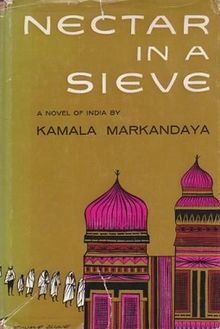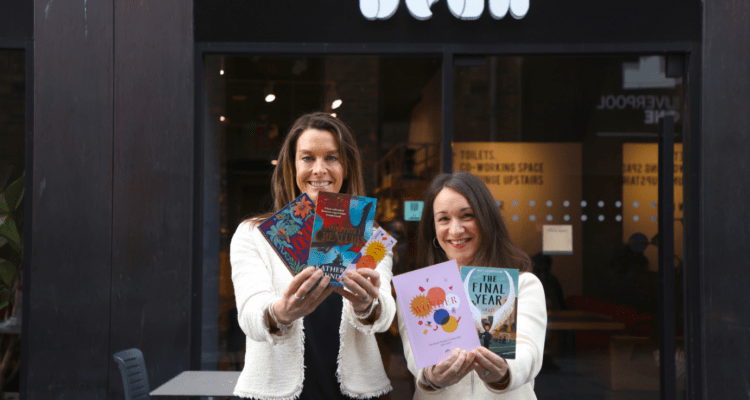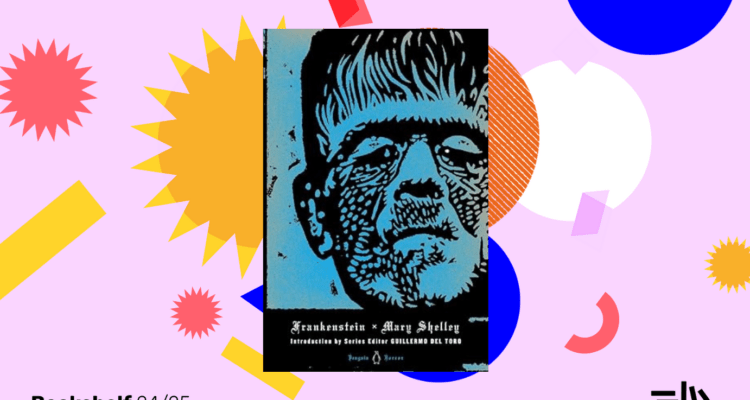From The Reader Bookshelf… Nectar in a Sieve by Kamala Markandaya
As part of our ongoing work around The Reader Bookshelf, we've asked staff to share their thoughts about some of the inspirational texts in the collection.
This week, our head of Head of Teaching and Learning Claire Ellis tells us about Nectar in a Sieve by Kamala Markandaya.

Words by Claire Ellis
‘‘We are home," he cried. ‘‘Wake up! Look!’’
I woke; I looked. A mud hut, thatched, small, set near a paddy field, with two or three similar huts nearby. Across the doorway a garland of mango leaves, symbol of happiness and good fortune, dry now and rattling in the breeze.
Rukmani is only 12 years old when her marriage is arranged. It takes a long time for the ‘mud hut’ to begin to feel like a home.
This is a novel of survival in more ways than one, as we meet Rukmani as an old woman at the start of the story, who then takes us right back to the beginnings of her marriage and subsequent years of family life as a wife, mother, grandmother and later widow. Rukmani has a lot to tell us.
Her story is also a stark reminder of what it really takes to live off the land, as we see whole communities, of which Rukmani’s family is a part, suffer in poverty and starvation when the paddy fields fail to yield the precious rice harvest on which life depends. In spite of the rapid urbanisation growing up around the family, the countryside in which Rukmani lives is stunningly beautiful and exciting – I discovered many new forms of life amongst the pages, such as finding out about the Mynah(see below for the recording of this new window opening up into my consciousness). But nature’s gifts can also be unpredictable, and plenty can also plummet to scarcity; or, as Rukmani reflects,
‘Nature is like a wild animal that you have trained to work for you. So long as you are vigilant and walk warily with thought and care, so long will it give you its aid; but look away for an instant, be heedless or forgetful, and it has you by the throat.’
The consequences of poverty are far reaching for the family and have ramifications for several generations, but what remains unwavering is Rukmani’s love for her husband Nathan and their children. She never gives up on them, and she never gives up on life. And in that sense readers of her story will not only come away with a deeper knowledge of just how hard life can be when you depend on the land for your living but also with a feeling of enlightenment, heartened by the strength and tenacity of the human spirit, where ‘growth was constant wonder – from the time the seed split and the first green shoots broke through, to the time when the young buds and fruit began to form…There have been many sowings and harvestings, but the wonder has not departed.’
Share
Related Articles

Liverpool ONE unveils book corners in partnership with The Reader to help boost literacy across the city
Liverpool ONE has unveiled a collection of ‘reading corners’ in a bid to help boost literacy levels among local people.…

March’s Choice From The Reader Bookshelf
The Reader Bookshelf is a carefully curated collection of literature for adults and children, exploring a different theme each year, this year’s…

The Storybarn Selects… From The Reader Bookshelf
The Reader Bookshelf is a carefully curated collection of literature for adults and children, exploring a different theme each year, this year’s…


